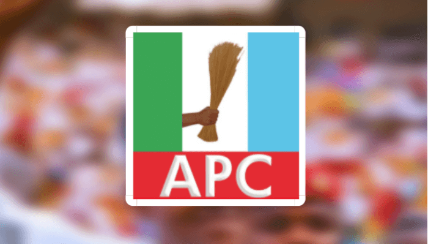Nigeria is experiencing a troubling trend of multinational companies (MNCs) exiting the country. This exodus has significant economic repercussions, prompting policymakers, economists, and stakeholders to seek solutions to reverse this trend.
The departure of companies like Kimberly-Clark, Procter & Gamble (P&G), Unilever, and GlaxoSmithKline highlights the impact of successive exits of MNCs from Nigeria. Kimberly-Clark’s exit, less than three years after investing $100 million, resulted in the loss of approximately 10,000 direct and indirect jobs and affected the availability of essential sanitary products.
Over the past five years, Nigeria has lost approximately N95 trillion due to this phenomenon. Understanding the underlying reasons behind these departures is crucial for addressing the challenges and restoring investor confidence.
Multinational companies thrive in environments with clear, stable, and predictable regulatory frameworks. In Nigeria, however, frequent changes in government policies, coupled with inconsistent enforcement, have created a climate of uncertainty. Companies face difficulties in planning long-term investments due to abrupt policy shifts, such as sudden changes in tax laws, import restrictions, and foreign exchange controls.
However, a significant factor contributing to the exodus of multinational companies is the declining purchasing power of Nigerian consumers.
“High inflation rates, unemployment, and poverty levels mean that consumers have less disposable income to spend on goods and services. For multinational companies, especially those in the consumer goods sector, this translates to lower sales volumes and reduced profitability,” says the chief executive of AntHill Concepts Limited, Dr. Emeka Okngwu.
Dr. Ayo Teriba, the chief executive of Economic Associates, told this medium that it’s important to note that many of the companies leaving Nigeria are also exiting other regions. He said if they were only leaving Nigeria and no other countries, we would be looking at Nigeria-specific reasons for their exit. “However, the exits are also happening in countries in North America, Latin America, and East Africa, indicating that the problem lies with the companies themselves, not specifically with Nigeria.”
“There are two primary factors at play here: cyclical considerations and strategic risks. Cyclical factors include high operating costs, naira devaluation, inflation, and interest rates. We’ve seen inflation rise globally, leading central banks to tighten rates. As inflation decreases, rates are being eased. These cyclical shocks present operating challenges, increasing costs and shrinking margins, which are sufficient reasons for companies to exit.
“However, it’s crucial to consider how companies are adjusting their operations. For example, Guinness and Diageo sold their bottling operations to another multinational but retained their brand presence in Nigeria. They continue to maintain their presence while transferring operational responsibilities to a party better positioned to manage operating risks. This isn’t an exit; it’s a strategic reallocation of resources,” he said.
Teriba cited examples of how American tech companies have done something similar by offshoring the assembly of their products to countries with cheaper labor and infrastructure.
“The brand remains, but they make strategic choices about where to operate. In Nigeria, Guinness is outsourcing its operations while retaining its brand, which doesn’t qualify as an exit.
“When Procter & Gamble left, they made it clear they were holding onto their market share. They simply didn’t find it profitable to produce their items in Nigeria due to high operating costs. This decision was about managing costs, not an indictment of Nigeria,” he stressed.
He also stated that strategic risks are another matter. He cited that technological disruptions, such as solar energy replacing other sources, can cause companies to exit certain businesses. “This isn’t something you can blame on any particular country; it’s a result of technological progress. Companies inevitably give way to technological disruptions.
Companies that can eliminate bottlenecks in energy, transportation, ICT, and communications—areas that make Nigeria uncompetitive—are likely to survive. I wouldn’t be surprised if companies hurt by the under-provision of energy and infrastructure temporarily struggle and either scale down or exit. The key is to adapt to the local environment and find strategic ways to manage operating risks“.
Dr. Muda Yusuf, chief executive of the Center for the Promotion of Private Enterprise (CPPE), also stated that the purchasing power of Nigerians has become extremely weak over the past few years. This, he said, has led to a market shift where local companies adapt by offering more affordable products, while multinational companies, with their premium brands, struggle to maintain market share.
He noted that foreign investors are averse to unstable currencies because it makes it extremely difficult for them to plan. “They have their standards about how they operate; they are not used to the volatile environment like what it is in many African countries; it’s not only Nigeria, they are also leaving other African countries,” he said.
He said operating in developing economies is not always easy for MNCs. “You will notice that the Chinese, Indians and local Africans know how to navigate the challenges peculiar to developing countries, which is not the same for MNCs.
“The other issue is that the business strategy of the multinationals is not very flexible in their business models; they have their standards across the world. So, when situations call for some flexibility in business models, it’s often very challenging for them because they have their global standards.
“For example, look at what the purchasing power has suffered over the past one or two years. The purchasing power of Nigerians has become extremely weak. So while some other companies are adjusting, covering up with fragmentation of products such as sachetisation to come down to the levels of the consumers, the multinationals are not structured to do that; they maintain their brands; and many of their brands are premium brands. When you have that kind of thing it makes the competition for the MNCs difficult.”
“Take for example, Ariel, which is produced by Procter and Gamble. Ariel is a premium brand. But because of the reduction of purchasing power of Ariel, not many Nigerians can afford it as they used to. “Because of that, a lot of other brands have come into the market; so they have lost their share of the market. The same applies to Omo and Elephant. If you went to the market today it’s not that there is a shortage of detergent. It’s just the question of competition strategy and how we can adjust business models to suit the current intense completion. The current business environment requires different kinds of approach, which many of the multinationals don’t have the patience for.
“That is not to say that there are no other challenges; but when challenges come how do you respond to them. For the multinationals, their own response is just to pack and leave; whereas the response of the locals is to see how they can navigate the challenges, even in sectors where people are leaving,” said Dr. Yusuf.
Dr. Emeka Okengwu, highlighted that the exodus is not solely due to forex issues but also because people are not buying what these companies produce. The lack of purchasing power means that MNCs are not meeting their returns on investment. This challenge is further compounded by other harsh business environment factors such as poor transportation and storage infrastructure.
He noted that in some sectors, multinational companies face stiff competition from local firms that have a better understanding of market dynamics and consumer preferences. He stressed that these local companies are often more agile and can operate with lower overhead costs, making it difficult for multinational companies to compete effectively.
The president of Independent Shareholders Association, Moses Igbrude, on his part, urged that the government prioritize stabilizing the naira and ensuring sufficient forex availability to facilitate business operations for MNCs. He also said investing in robust infrastructure, particularly in the power sector, can reduce operational costs and improve the business environment. Igbrude further said establishing clear, consistent, and favorable policies for foreign investors can build confidence and encourage long-term investments.
Nairametrics













